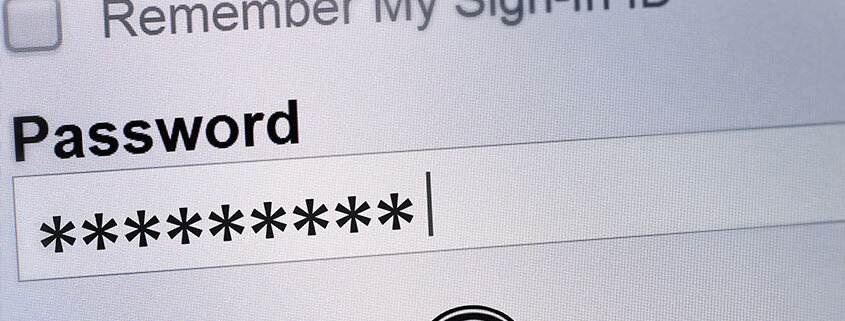Get your calendar. Find a half-day in the next two weeks and block it off for “Password Security.” Do it now, then you can read the rest of this article.
Data breaches have become so common that it’s hard to even make a list of them all. At the recent World Economic Forum, it was reported that North American and European businesses believe that cyber-attacks are the number one greatest risk to doing business globally.
At a personal level, if you’ve ever used Facebook or Fortnite, or applied for credit, you’re at risk – and that pretty much covers everyone in North America. And don’t think that you are of less interest to hackers than others might be. At a recent staff meeting, there were several of us who have received emails that contained one of our actual passwords, and demanding payment. Fortunately for us, those passwords had since been changed. But it proves that we are all at risk for identity theft, bank fraud, ransomware, and the many, many other ways that hackers can make your life a living hell. So, how do you protect yourself?
First, you need a different password for every single account you have. That includes bank accounts, app accounts, email, social media, your phone, your Wi-Fi, and on it goes.
Second, you need each of those passwords to be completely random. Don’t even think about creating a password that you’ll be able to remember. If you can remember it, it’s not secure enough, period.
The biggest challenge then is not using unique and random passwords but remembering them. There are apps for that, and some old school methods as well. Both have their pros and cons. Choosing a method really depends on how you use the internet. Here are three examples:
Bubby is 88 years old. The only device she has is an iPad. She uses email, Facebook, online banking, and plays some online games. Bubby never needs to access any of her online accounts from anywhere other than her own living room. For her, listing her user names and passwords in her hard copy address book is the best method. The chances of her losing address book or someone stealing it are pretty negligible. It if burns up in a fire, she can regain access to all of her accounts with her email address.
Sarah is 16. She has a smartphone and laptop with at least 40 apps. She does some homework and plays a few games, but most of her online activity is texting or chatting with friends, and posting to social media. For Sarah, one of the free password manager apps, like LastPass or Dashlane, provide great security. She will still have to set up strong passwords and remember her password manager password (but she can write that one password down and hide it in her dresser).
George is 45. He’s a consultant that works with clients all over the country and frequently travels. George has social media accounts on all the major platforms, he does his banking and shopping online, he makes appointments with his doctor and dentist online, he uses Google apps and stores all of his work documents online, and he has a smartphone. George has a lot of accounts and sensitive documents, and he accesses them on his phone, laptop, and PC.
For George, a paid subscription to a password manager is well worth the cost. According to PC Magazine, George should have the premium version of Dashlane or Keeper.
For those of you who exclusively use either Android or iOS, or who are on a PC most of the time, you can also consider iCloud Keychain or Google Password Manager.
The most important thing to remember is that you need to have long, complex passwords that are completely unrelated to anything about you. So, seriously, get on it!


